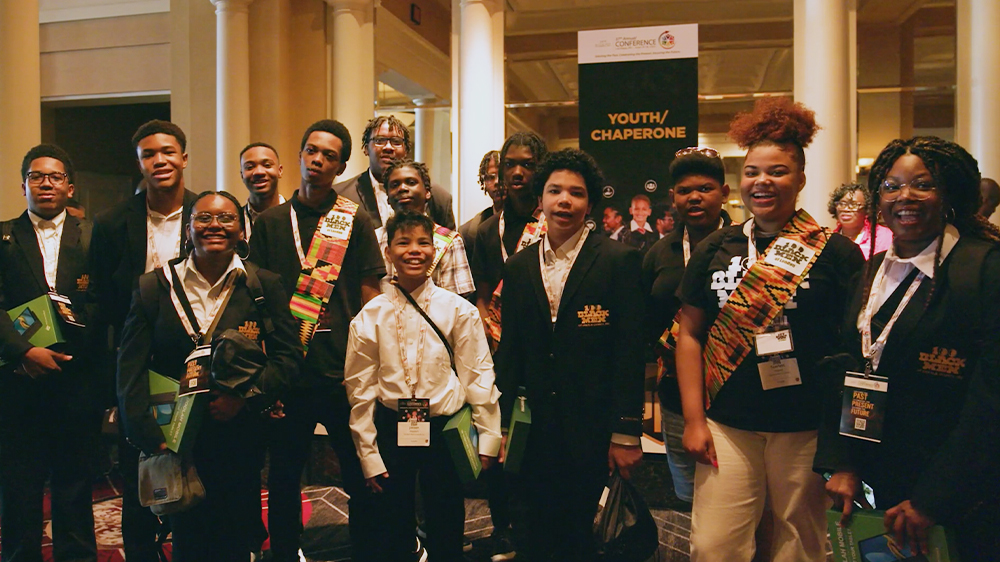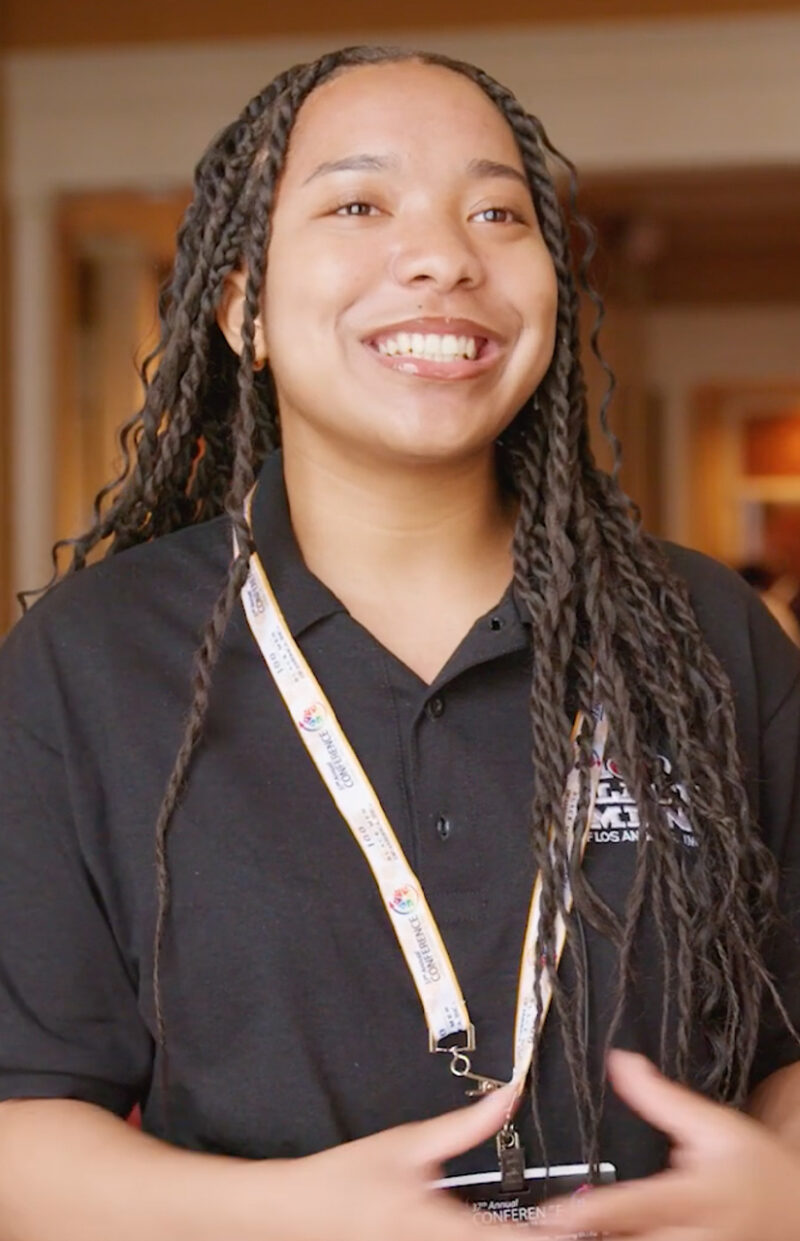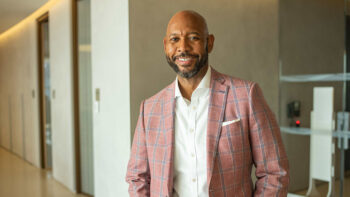How the 100 Black Men of America empowers youths by investing in their future
High school students learn the keys to investing and building wealth during the Junior Investment Club, with the support of mentors from the 100 Black Men of America.

For 14 weeks, Jada Rabun eyed the stock market like an investment professional. She’s one of many high school students across the country who has taken part in the Junior Investment Club, a 10-week stock market simulation that teaches young people how to invest.
Paired with mentors from their local 100 Black Men of America chapter, the young people are primed to take what they’ve learned and grow multigenerational wealth later in life.
Using the SIFMA Foundation’s Stock Market Game, student teams are given a virtual $100,000 to invest in stocks, bonds, and mutual funds and learn the value of capital markets as they work together to maximize the return of their portfolios.
The competition culminates with five finalist teams competing at the 100 Black Men’s annual conference. Since 1963, the Atlanta-based organization has mentored young Black people to prepare them to be future leaders.
“Just being in [the competition] after four years, and going on to my fifth year, I really see the benefits of it,” Jada said when she competed in 2023. “I would have never imagined in eighth grade for me to be at a national conference.”
Making generational change
Since 2019, the Junior Investment Club is delivered to students by mentors like Moses Harris, a senior Black and African American Segment leader for Wells Fargo who’s been a member of the Los Angeles chapter of 100 Black Men for almost a decade. Each Saturday morning, Harris volunteers to help students understand stock market fundamentals and its risks as part of the program.
“Early on, our students are a little timid on what they should do and how many shares they should buy,” Harris said. “We like to give our students the education, and with education comes confidence. When you’re confident, you’re able to perform and participate.”
The Junior Investment Club and other economic empowerment efforts from the 100 Black Men aim to prepare students for their financial futures while also fostering mentoring relationships between generations.
“We see the parents are very engaged and interested,” said Bonnie Wallace, head of Financial Health Philanthropy for Wells Fargo. “So, it’s really extending the learning not only with the youth, but with the older generation as well.”
Jada is the third generation in her family to be involved with the 100 Black Men. Her father, John Rabun, was brought to the group’s Los Angeles chapter by his own father as a high school student.
“Generation to generation, it means a lot,” John said. “[100 Black Men] has had a profound impact on me and my family, and so I wanted to introduce [it to] my daughters.”
Carrying financial lessons through life
The 100 Black Men of America and Wells Fargo have worked together for roughly 35 years to increase pathways to economic advancement for youth and young adults. This collaboration is part of Wells Fargo’s broader commitment to supporting historically marginalized communities as The Bank of Doing.
“Generational wealth gives you the opportunity to have a better life. Not only for you, but for your kids.” — Lester Owens, retired head of Operations for Wells Fargo
“Generational wealth gives you the opportunity to have a better life. Not only for you, but for your kids,” said Lester Owens, retired head of Operations for Wells Fargo and member of the 100 Black Men. “The more that we can give somebody the opportunity to be successful, the more they can carry that with them for generations for others to be successful as well.”
Following the competition, Jada was looking at colleges and planning to pursue a medical or business degree.
“[The 100 Black Men] has really helped spark my interest in the business field,” she said. “I’m going to continue the program probably for life.”







